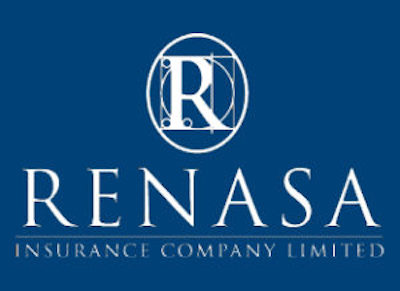Dr Caesar Mwangi, CEO, ICEALION Insurance Holdings, Nairobi
We firstly need to acknowledge the fact that resilience and growth is critical for the African Insurance Industry given the low level of Insurance penetration in Africa.
Statistics I came across for 2017, indicates that only 6 out of 54 countries in Africa had Insurance penetration levels larger than 2%. 50% of African countries had penetration rates lower than 1%. This low penetration is attributed to premiums being financially out of reach of majority of Africans and also due to relatively low levels of financial literacy.
Given the low levels of penetration, there is also the resultant problem of poor business practices as insurers scramble for the small insurance cake. These poor business practices include price under cutting and increased cases of fraud and collusion with ecosystem players. This further complicates the drive towards a resilient and growing industry.
It is incumbent upon all Insurance players to focus on the issues we have control over. We certainly have control over the practice of sound business practices that ensure risks are properly underwritten and priced so that we meet our contractual promises promptly when the risks mature. Anything short of this will erode trust in the industry
and further hamper the drive to a resilient and growing industry.
When we talk of resilience, we also need to talk about the need to embrace the concept of sustainable insurance. Fortunately, knowledge on sustainable insurance practices are within the reach of all insurers through the UNEP Finance Principles of Sustainable Insurance (PSI). Our Company ICEALION Group has signed up to these principles as we strive to recognize and deal with the emerging challenges in the world that have a negative impact on the future prosperity of the world and in turn hamper sustainable business.
We recognize that global challenges cannot be addressed individually. They require coordinated collaboration. In Africa we have experienced challenges related to climate change. These continue to wreak havoc with commonly observed phenomena such as floods due to erratic rainfall and deforestation, rising lake levels due to runoff and erosion getting into lakes, reduced absorption of groundwater aquifers and the total devastation of livelihoods for millions of Africans resulting in an ever deepening poverty and frustration that triggers desperate attempts to leave the continent in pursuit of greener pastures in the developed world. We really need to do all we can to mitigate these negative global challenges that continue to worsen in the absence of concerted, coordinated actions from business, governments and communities.
Turning to the current 2020 reality which has been seriously impacted by the once in one-hundred-year event known as the Covid 19 pandemic, there are a few key lessons we can all learn. This pandemic reminds us that we are now totally inter related and inter dependent as a world. The world wide web is not our only connector as we now realize that a virus in a Chinese city can literally affect the entire world economy and bring to their knees millions of businesses, entrenching poverty and desperation on a scale never experienced in recent history. We need to be each other’s keepers as we operate locally but act in the interest of the whole world. We need to consider not only our own short term prosperity but the sustainable prosperity of others. Together we can rise to higher levels of progress and individually we may rise but we may also destroy the ability of others to rise.
This pandemic has brought us to the realization that we need to focus more attention on those issues that will protect the wealth of the most vulnerable. In Africa with a population in excess of 1.3 Billion people and with a massive land mass that is utilized by millions of people for their livelihoods, we need to seriously consider new ways of introducing affordable agriculture Insurance products that can cushion people from agricultural risks. We also need to innovate relevant micro insurance products that can cushion the low income earners who are the majority from unforeseen risks related to health and livelihoods.
It is my wish that Insurers in Africa can heed this call and rise to this challenge.




